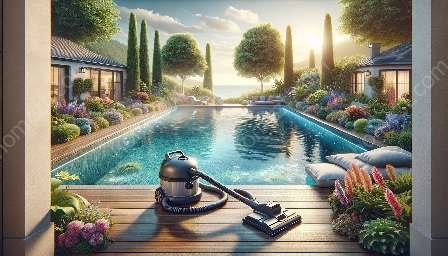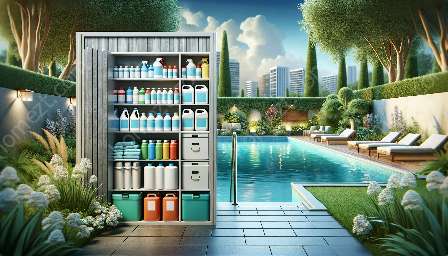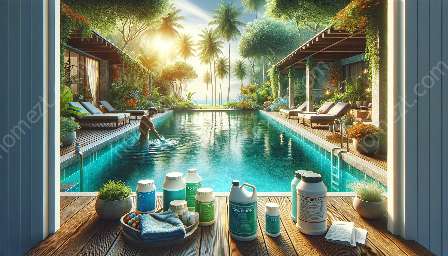When it comes to maintaining a sparkling and safe swimming pool or spa, understanding pool chemistry is crucial. Proper pool chemistry not only ensures a clean and inviting pool, but also plays a key role in the effectiveness of pool cleaning efforts.
The Importance of Pool Chemistry
Pool chemistry refers to the balance of various chemical factors in the water, including pH levels, sanitizers, and alkalinity. Maintaining proper pool chemistry is essential for several reasons:
- Water Quality: Balanced pool chemistry helps ensure that the water is clean, clear, and free from contaminants, providing a safe and enjoyable swimming experience.
- Equipment Longevity: Properly balanced pool chemistry helps protect your pool equipment, such as filters and pumps, from damage caused by corrosive or scaling water.
- Safety: Maintaining the right chemical balance in the pool water helps prevent the growth of harmful bacteria and algae, reducing the risk of infections and illnesses.
- Comfort: Balanced pool chemistry also contributes to the comfort of swimmers by preventing skin and eye irritation often associated with unbalanced water.
Key Factors in Pool Chemistry
Several key factors contribute to proper pool chemistry:
- pH Level: The pH level indicates the acidity or alkalinity of the water. Maintaining the pH within the recommended range (7.2-7.8) helps optimize the effectiveness of sanitizers and prevent equipment damage.
- Sanitizers: Chlorine, bromine, or other sanitizers are essential for killing bacteria and preventing algae growth. The appropriate level of sanitizers varies depending on factors such as pool usage and weather conditions.
- Alkalinity: Total alkalinity acts as a buffer, helping to stabilize the pH level and prevent rapid fluctuations. Maintaining proper alkalinity (80-120 ppm) helps keep the water balanced.
- Calcium Hardness: This refers to the amount of dissolved calcium in the water. Proper calcium hardness levels (200-400 ppm) help prevent the water from becoming corrosive or scaling.
Pool Cleaning and Chemistry
Effectively maintaining pool chemistry also supports pool cleaning efforts:
- Enhanced Cleaning Efficiency: When the pool water is properly balanced, pool cleaning tools and equipment, such as skimmers, brushes, and vacuums, are more effective at removing debris and maintaining a clean pool.
- Prevention of Buildup: Balanced pool chemistry helps prevent the buildup of dirt, oils, and other contaminants that can make pool cleaning more challenging and time-consuming.
- Equipment Protection: Proper pool chemistry not only promotes the longevity of pool equipment but also enhances the performance of cleaning systems, such as automatic pool cleaners.
Maintaining Swimming Pools and Spas
In addition to understanding pool chemistry and its relationship with pool cleaning, maintaining swimming pools and spas involves several essential practices:
- Regular Testing: Regularly testing the pool water for chemical levels is crucial in maintaining proper pool chemistry. Test kits are available to measure pH, sanitizer levels, alkalinity, and other factors.
- Balancing Chemicals: Adjusting the chemical levels as needed to ensure they remain within the appropriate ranges is essential for maintaining pool chemistry and supporting pool cleaning efforts.
- Cleaning and Maintenance: Regularly cleaning the pool and spa surfaces, skimming debris, and maintaining the filtration system are vital for keeping the water clean and clear.
- Professional Maintenance: Seeking professional pool maintenance services can help address more complex pool chemistry issues and ensure that the pool is properly cared for.
Conclusion
Understanding and maintaining proper pool chemistry is fundamental to the overall health and cleanliness of swimming pools and spas. By prioritizing pool chemistry and its relationship with pool cleaning, pool owners can provide a safe, comfortable, and enjoyable swimming experience for themselves and their guests.





























